Welcome to the University of Toronto. Whether you are in first-year, or well into grad school, when you’re not studying, you’ll need to take excellent care of yourself physically, mentally and socially. This A to Z list of self-care resources is a starting point. It does not replace the Student Organization Portal, the all-encompassing directory to help you find EVERYTHING you’re looking for, at least socially.
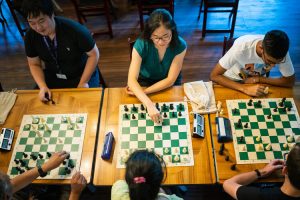
A is for Accessibility Services. If you need test or exam accommodation, register with them immediately.
The Accessibility Services team is also behind the ADHD Skills Group.
They also run the Social Association for Students with ASD.
The Al-Anon meeting nearest to campus is at Trinity-St.Paul’s United Church (427 Bloor St. W) on Mondays at 7PM.
A is also for anxiety, which almost everyone has at some point and to some degree. Here is where you’ll learn how to manage it before a test or exam.
B is for breath. Sure, you’ve been breathing since the day you were born, but do you know how to breathe for relaxation? The Breathe Well Workshops are taught via Zoom.
B is also for brave, which you have to be when you start a big new phase of life, like university or adulthood.
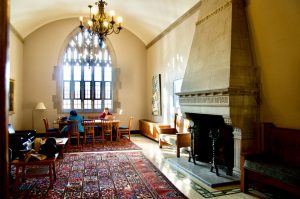
C is for commute and commuters. Travelling to and from university every day means you need a home-base on campus to rest between classes and to act as a community centre. You are certainly welcome in the Economics lounge at Max Gluskin House, but your college and the programs they have for commuter students are meant to be your home base. Here’s an overview:
There are a number of quiet spaces at Innis College where commuters can rest and study between classes. These spaces will remain dedicated to the Innis student community throughout construction of the College’s expansion building.
New College has student-led community hours and special events hosted throughout term. Find out more by visiting the Wilson Lounge at 40 Willcocks St.
St. Michael’s College has a dedicated team of dons for commuters.
Trinity College has a space for commuters to rest and study in Seeley Hall. Access it by checking in at the welcome desk inside 6 Hoskin.
University College has the Commuter Student Centre on the first floor of the University College Student Union.
Victoria has a commuter student lounge in the basement of the Goldring Student Centre and the Victoria Off Campus Association that plans regular events.
The Woodsworth College Students Association plans regular and special events for commuter students.
D is for Digital Connections. The toolkit describes resources that assist students in building online clubs, groups and meetings online.
D is also for dinner. By now, you’ve made your decisions about meal plans for both on-campus living and commuters. You’ve also probably learned that Toronto has an amazing food culture. There is also the Trinity Food Systems Lab that partners with other community and university-based organizations to grow and distribute food on campus. The lab is part of Trinity’s sustainability action plan.
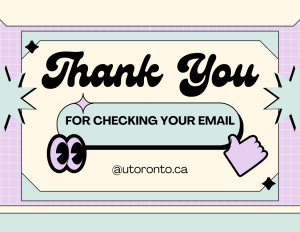
E is for email.
Don’t just check your university email daily.
Read it daily.
Your utoronto.ca email is your passport to opportunities around campus, to ensuring your profs and TAs read your messages to them, and to getting newsletters and updates that are rich with information you will need.
Yes, everyone loves and hates social media. The Department of Economics has accounts on LinkedIn, Twitter (no, not giving in to the X), and Instagram. There’s even a Facebook page for your parents. Email is still the best way to reach a lot of people and that’s why UofT uses it.
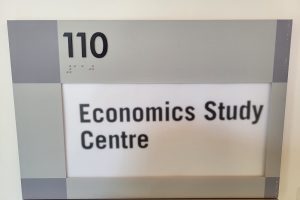
E is also for the Economics Study Centre, the department’s drop-in peer tutoring services located on the first floor of Gluskin and staffed by upper-year students who aced ECO101 and 102.
F is for First Aid and knowing how to respond to a crisis. The University of Toronto First Aid Society offers students discounted certification and donates the profits to charity.
F is also for Food Bank. The University of Toronto Student Union has run a food bank for students since 2001.
G is for group therapy. If there is one thing human beings have in common, it is that we all have problems. Often, they are the same problems. Make an appointment with Clinical Services to talk about what kind of support is best for you.
H is for Health and Wellness. Located at 700 Bay Street, Health and Wellness is where you will find medical care, mental health care, workshops, and programs to help you take care of yourself. Access it with your OHIP/UHIP card and TCard.
H is also for housing. Housing Services has all the information about on campus residence and as much information as they can get about off-campus housing.
I is for Innovation Hub. The Hub was founded to gain a deep understanding of University life through the use of design thinking and qualitative research methods. The team wants to hear from every voice. That includes your voice too.
I is also for Intramurals. You shouldn’t stop playing sports just because you aren’t a Varsity Blue or headed for the pro-league.
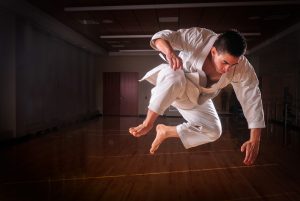
J is for judo. The University of Toronto Judo Club has been active at Hart House for over 40 years. There is also the 60 year-old University of Toronto Karate Club at the Athletic Centre, and the Taekwondo Club at Hart House. You don’t need to have a black belt to join. For all three martial arts clubs, all levels of skills and experience are welcome.
K is for the Koffler Student Services Centre at 214 College Street. It’s where you will find the UofT Bookstore.
L is for lockers. Students who commute to campus have luggage. There are day lockers at both the Athletic Centre and Hart House, but you can also rent one for the term at your college, so you don’t have to carry everything you need back and forth every day.
M is for microeconomics and macroeconomics. You can discuss both and learn to apply them to real life scenarios by making contact with the Economics Students Association and the Economics Club.
N is for nutrition. As a student, you can book a consultation with a nutritionist to discuss your food choices and options. Health and Wellness also offers a virtual session in mindful eating called Food and Mood.
O is for out, as in out of the closet. For many students, university is their first opportunity to be their true selves. There is support and safety around campus. LGBTOUT is Canada’s oldest 2SLGBTQ+ student organization. The Sexual and Gender Diversity Office respects and protects the human rights of all members of the University community.
P is for Peer Support Services. From October to April, Peer Support Service offers a one-on-one, drop-in, non-judgmental, and confidential virtual and in-person space for students. A team of trained student Peer Supporters provide students with drop-in mental health support, referrals to clinical and non-clinical supports on- and off-campus, and immediate access to urgent and emergency resources for students who need them. Peer Supporters can be reached Wednesday to Fridays, between 11 AM and 4 PM.
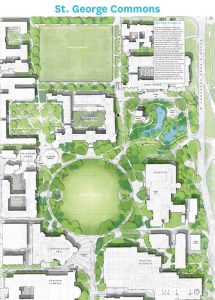
Q is for quad. On campus, quads are the equivalent of your back yard. The University College Quad, the newly revitalized King’s College Circle and Philosophers’ Walk are all green spaces where you can take a break from urban Canada.
Q is also for questions. Here are the answers to Frequently Asked Questions about the Economics programs.
R is for research. The Faculty of Arts and Sciences offers research opportunities in the form of internships, work study positions, and through programming. There is also the chance to develop and fund your own research project through the Undergraduate Research Awards.
R is for Recognized Study Groups, student-led groups of classmates who—by studying together—practice one of the most effective ways of learning new material.
R is also for registrar. When you need an advocate, or someone to help you navigate a system you’ve never encountered before, your college registrar’s office is the place to go.
S is for the Student Health & Wellness Portal. Your most important task is taking care of yourself.
S is also for scholarships. Scholarships and other kinds of funding are available throughout all four years of university. Sometimes students assume there will be many, many superstar applicants and don’t even bother to apply. Take the time to send in an application. You never know what will happen.
“If there’s a bursary, scholarship, or grant that’s available, it never hurts to apply since you could be among the few candidates who would be considered for that item,” said Johnny Tong, Instructional Support Assistant with the Department of Economics.
T is for TCard. You need it for everything. The TCard Office is at 800 Bay Street.
U is for Union. By joining the University of Toronto you are now a part of the University of Toronto Student Union that runs the Food Bank and other essential services. You are also part of the Arts and Sciences Student Union that deals with academic matters. The student unions, and your college’s student government, advocate for student rights and interests at every level of the university hierarchy.
V is for the Varsity. The media outlet has been sharing student news written from student perspectives since 1880.
W is for work study. Designed for full-time students, work study positions are limited to just 6 to 10 hours each week to help students gain work experience while keeping most of their focus on their studies.
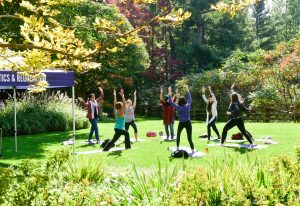
X is for…something, surely. Let the department communications officer know if you come up with any suggestions for this space.
Y is for yoga. After 5000 years, yoga has earned its place on the drop-in fitness schedule at both Hart House and the Athletic Centre.
Z is for zzzz to represent snoring…at least in comic books and when writing an A to Z list. It’s a myth that being a student necessitates going without sleep. Sleep not only improves long-term memory, but has also been shown to increase insight.
“One of the best ways university students can buttress their mental health is by focusing on their sleep quality,” Associate Professor David Samson told the University of Toronto News in an article about his research at UTM’s Sleep and Human Evolution Lab.
Need some sleep training? Check out the 1.5 hour Sleep-Well program.
There is nothing like a good night’s rest to help you wake up and start the work of being a student. Have a great year!
Return to the Department of Economics website.
Scroll more news.
